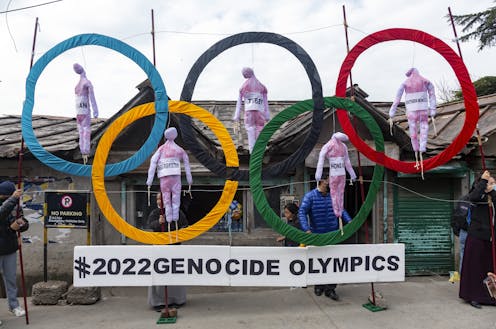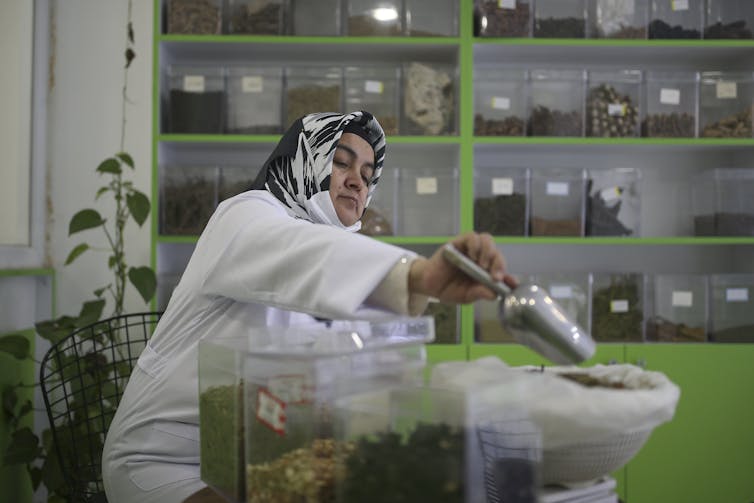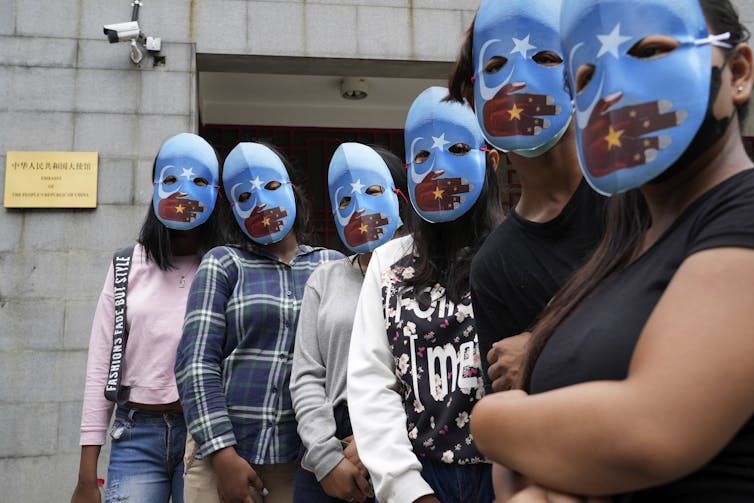
Last June, Canada’s delegation to the United Nations was part of an international effort calling for UN inspectors to have free and unfettered access to China’s Xinjiang region to assess reports of human rights violations against Uyghurs and other Turkic Muslims.
Chinese UN representative Jiang Duan promptly fired back, noting that Canada “robbed Indigenous people of the land, killed them and eradicated their culture.”
The truth is, the Chinese government is taking a page out of Canada’s cultural genocide handbook in Tibet, Xinjiang and Inner Mongolia — extinguishing multiple cultures within their borders.
With the 2022 Beijing Olympics underway, Prime Minister Justin Trudeau’s refusal to support a full boycott of the Games is perplexing.
Ongoing colonialism
Settler colonialism is a specific kind of colonization where settlers seek to not only displace Indigenous people, but replace them entirely.
In Canada, this has included armed assault, geographical displacement and the eradication of Indigenous culture and fragmentation of families (as was done through the residential school system and the 60s scoop).
China has used settler colonialism to destroy Uyghur and Tibetan cultures, moving large numbers of Han settlers into Xinjiang and Tibet.
International affairs scholar Sean R. Roberts and anthropologist Uradyn Bulag have labelled Chinese efforts in Xinjiang and Inner Mongolia as settler colonialism.
As international relations scholar Dibyesh Anand explains: “The basic premise behind development in contemporary China is not the empowerment of these peoples but their disempowerment, by making them dependent on the state, by destroying their traditional ways of being, and by taking away their dignity, ultimately through state violence.”
And Anand isn’t alone. Academics are pointing to ongoing settler colonialism along China’s borders. Identifying China as an imperial state, anthropologist Carol McGranahan argues that the regime’s settler colonialism has inflicted “dispossession and domination, including the loss of state sovereignty.”

In Canada, the Indian Residential School system and colonialism are often framed as in the past — but the last school closed less than 30 years ago, and colonialism is still ongoing.
The Truth and Reconciliation Commission published its final report in 2015 detailing the horrific atrocities that occurred at Indian Residential Schools and its ongoing impact on communities.
The report also included 94 calls to action that must be completed as steps toward reconciliation — in six years however, only 13 calls have been completed.
Summer 2021 was a period of reckoning for many Canadians as they faced the horrific truths dredged up by unmarked graves at former Indian Residential Schools. And Canadians are still reckoning with the country’s acts of genocide as more unmarked graves continue to be found.
We’ve now begun to face the realities of whats been happening in our own country, but we must maintain that same expectation in our relationships abroad.
Concerning parallels
For hundreds of thousands of children in China, being taken away from their homes and placed in boarding schools is a grim reality.
A recent report by the Tibet Action Institute estimates that the Chinese government is forcing three out of four Tibetan students into boarding schools and separating up to 900,000 children from their families.
The goal, explains the Tibet Action Institute, is to “eliminate Tibetan identity and supplant it with a Chinese nationalist identity in order to neutralize any resistance to Chinese Communist Party rule.”

In Xinjiang, Tibet and Inner Mongolia, traditional language education is being eradicated. In Xinjiang in particular, more than a million Uyghurs and other Turkic Muslims are forced into political “re-education camps,” used for “coercive social re-engineering” compatible with the government’s aim to promote a universal Chinese culture within its borders.
Many children of detainees are sent to state-run institutions where they are “raised ostensibly as Han children in a Chinese-language environment with Han child rearing methods adopted by the state as standard.”
Should we — as Canadians — be shocked? That’s partly how settler colonialism works: domination has its regional differences, but the broader patterns are mostly the same.
The prime minister hasn’t learned
It seems Trudeau hasn’t learned as much as he should have from the Truth and Reconciliation Commission. Because here we are, with a prime minister who refuses to take a political stance against what is happening in China.
His approach, which borders on disinterest, diminishes the efforts made by Canadians to address their own country’s wrongs.
Read more: 2022 Winter Olympics will help Beijing 'sportwash' its human rights record
Following Chinese UN representative Jiang Duan’s condemnation of Canada’s human rights record at the UN, Trudeau asked:
“In Canada, we had a Truth and Reconciliation Commission. Where is China’s Truth and Reconciliation Commission?”
Although Trudeau did appear to see the parallels between China and Canada, and Canada’s quest for truth and reconciliation, he still stopped short of withdrawing the nation from the 2022 Beijing Olympics.
The Olympics will undoubtedly draw attention away from the Chinese government’s genocidal policies, permitting the authoritarian regime “to sportwash” its reputation.
The authors do not work for, consult, own shares in or receive funding from any company or organisation that would benefit from this article, and have disclosed no relevant affiliations beyond their academic appointment.
This article was originally published on The Conversation. Read the original article.







